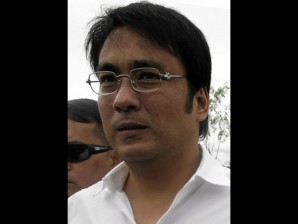Senator Revilla seeks probe of MRT, LRT
MANILA, Philippines—Senator Ramon Revilla Jr. has called for a Senate inquiry into the state of the country’s mass railway service in the wake of the government’s plan to raise fares on both the LRT and MRT lines after realigning the government subsidy on the mass transport system to other social services.
Revilla, the chair of the Senate committee on public services, said he was also interested on why the government was insisting on a buy-back scheme for MRT 3 and the reported bribery attempt on the purchase of train coaches involving Department of Transportation and Communication and MRT officials.
He also wants to look into the slow implementation of MRT 7, which he said was an intermodal line that is expected to transport passengers northeast of Metro Manila and Bulacan to North Avenue in Edsa.
Revilla said he was against the government’s plan to increase MRT and LRT fares by as high as P10. He said the main reason government constructed the mass train system was to have an efficient, safe and cheaper mode of transportation.
“This is a very sensitive issue that the government must address first before making such a move. Yes, the increase would provide enough money, but this will not result in better services but in paying off debts,” Revilla said.
Article continues after this advertisementRevilla said it would even be more difficult for the riding public to accept fare increases considering the dwindling reliability of the rail systems.
Article continues after this advertisement“They want to raise fares but the coaches often go out of order and services often stop. There’s even an instance when service issues reach three a week causing delays in the service. Then there is the matter of out-of-order escalators and elevators,” Revilla said.
In his State of the Nation Address on Monday, President Aquino stressed the need to realign subsidies spent for the MRT and LRT operations to social services.
Transportation Secretary Emilio Abaya has said the government is eyeing a P10 increase to be implemented in two tranches over two years, or P5 for every year.
